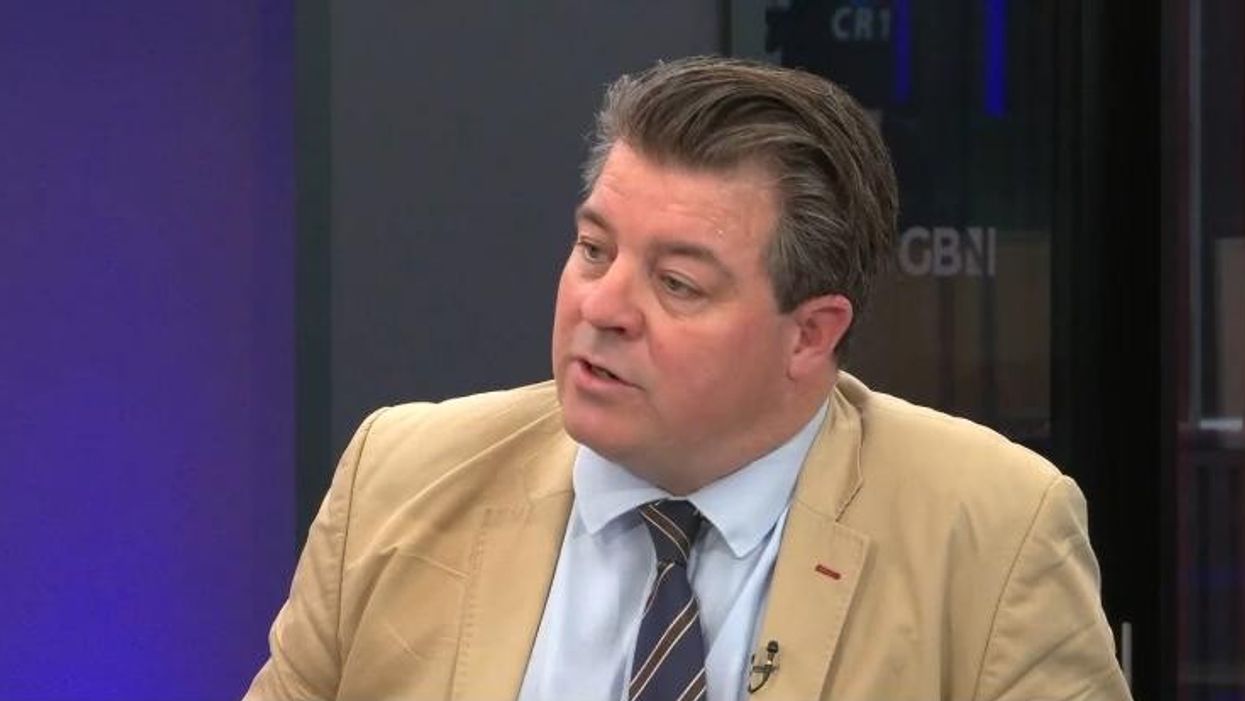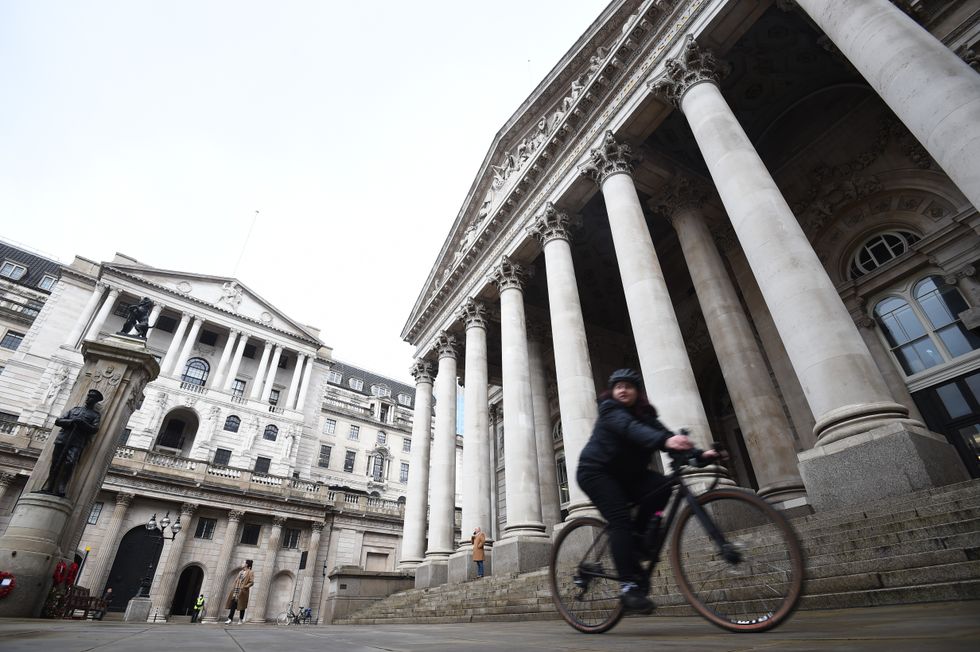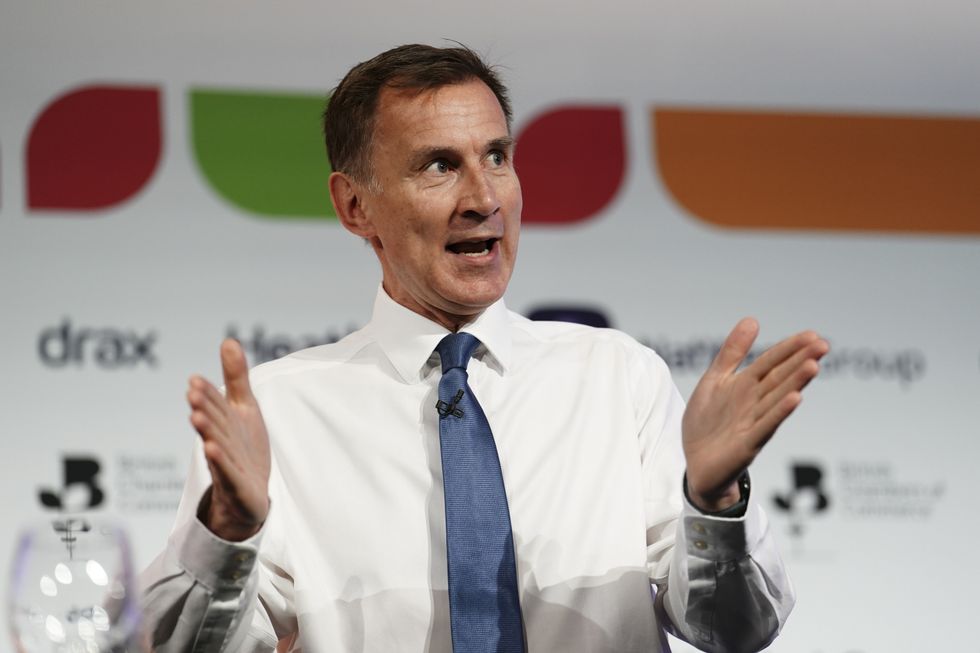Shocking inflation announcement puts UK and Bank of England under huge pressure

Liam Halligan has coined Britain the inflation nation
| GB News
By Liam Halligan
Published: 21/06/2023
- 15:07Financial markets predict there is more to come
Don't Miss
Most Read
Latest
The UK’s annual inflation rate remained unchanged in May at 8.7% - adding to pressure on the Bank of England to raise the cost of borrowing again.
This data, when it was published at 7am this morning, came as a shock.
Having covered economic issues on television and in print for around 30 years, in fact, this stubbornly high headline inflation figure – which shows the cost-of-living crisis has a long way to go – is among the most shocking numbers I’ve reported on.
After peaking at 11.1% in October, UK inflation was widely expected to keep falling in May, helping Prime Minister Rishi Sunak to meet his pledge to “halve inflation by the end of the year”.
But figures from the Office for National Statistics show the consumer price index last month remained stubbornly high, still 8.7% higher than in May 2022 – with inflation unchanged from April.
Falling petrol and diesel prices for motorists made the largest downward contribution to the headline figure, with energy price inflation also easing. But these factors were offset by a sharp rise in the cost of airfares, hospitality, second-hand cars and, above all, the still sky-high cost of groceries.
Food price inflation was still up at 18.3% in May, as prices in the shops continued to rise quickly, only slightly down from 19.1% the month before – helping to confound numerous forecasts from economists in the City of London and elsewhere that overall inflation would drop.
And “core inflation” – a technical measure excluding items with fast-changing prices including energy and alcohol, as well as food – actually rose from 6.8% in April to 7.1% in May.

The Bank of England
| PAThe increase in this closely-watched metric – which captures the impact of supply-chains shortages, wage bargaining and other underlying price pressures – will be of particular concern to the Bank of England’s monetary policy committee (MPC) – the nine-strong group of economists who set interest rates.
The base rate has already increased from 0.1% at the end of 2021 all the way up to 4.5% last month. It is now all but certain the committee will raise rates for the thirteenth time in a row when it makes its latest announcement at 12 noon tomorrow.
But, in light of this latest inflation data, financial markets have “priced-in” a 50% chance that rather than raising rates by 0.25 percentage points to 4.75%, the MPC may attempt to demonstrate its determination to stamp out inflation by imposing a more drastic 0.50 percentage point rise to 5%.
And financial markets predict there’s more to come – with the Bank now expected to push its base rate all the way to 6% by the end of the year.
Today’s shocking inflation data, and the Bank of England’s likely response, has knock-on effects for countless mortgage holders. During the run-up to the next general election, expected in the autumn of 2024, several million homeowners will see their fixed-rate mortgage contracts expire.
Having secured 2-year, 3-year and 5-year deals between 2017 and the end of 2021, when rates were very low, numerous households will be forced to re-mortgage at market rates now well above 6% – rising to 7% or 8% in some cases – seriously upending their family finances.
And upward pressure on interest rates is also being generated by UK government borrowing – which soared to £20 billion during May according to official data published this morning, more than double the £9.4 billion of state borrowing in the same month last year.
That ongoing gap between government spending and tax receipts pushed the UK’s overall national debt above the annual size of the economy for the first time in over sixty years – with the ONS confirming that the British state’s total debt mountain is now 100.1pc of gross domestic product (GDP), exceeding 100pc for the first time since March 1961.
As government debt rises, investors generally demand that the state pays higher rates of interest to borrow more, pushing up the rates charged on mortgages and other personal loans.
 Chancellor Jeremy Hunt | PA
Chancellor Jeremy Hunt | PAChancellor Jeremy Hunt responded to today’s inflation data by saying that he recognised ongoing price rises are hurting families and businesses across the country. “Our plan to halve the rate this year is the best way we can keep costs and interest rates down,” he said.
“We will not hesitate in our resolve to support the Bank of England as it seeks to squeeze inflation out of our economy, while also providing targeted support with the cost of living”.
Shadow Chancellor Rachel Reeves said the government was failing to tackle price pressures, and pointed to a previous spike in market interest rates last autumn, in the aftermath of tax-cutting policies proposed by then Prime Minister Liz Truss.
“This Tory government can’t get a grip of this problem because they are the problem – thirteen years of the Tories and their disastrous mini-budget are damaging our economic security and leaving families worse off,” she Reeves.
With UK inflation at 8.7% in May – compared to 6.1% across the eurozone and 4% in the US – Britain is now an inflation outlier, as our cost-of-living crisis refuses to ease.
And while there are many reasons behind the UK’s acute price pressures – from high wages demands to the war in Ukraine – history shows that when the finances of families are hit hard, and voters feel poorer, they tend to blame whoever is in government.









